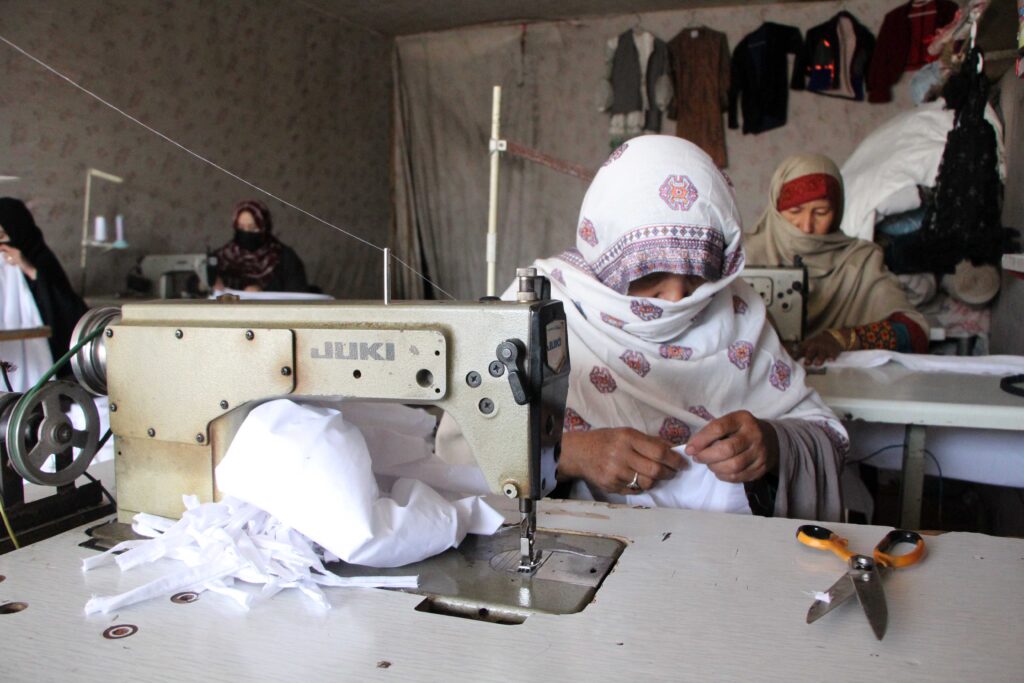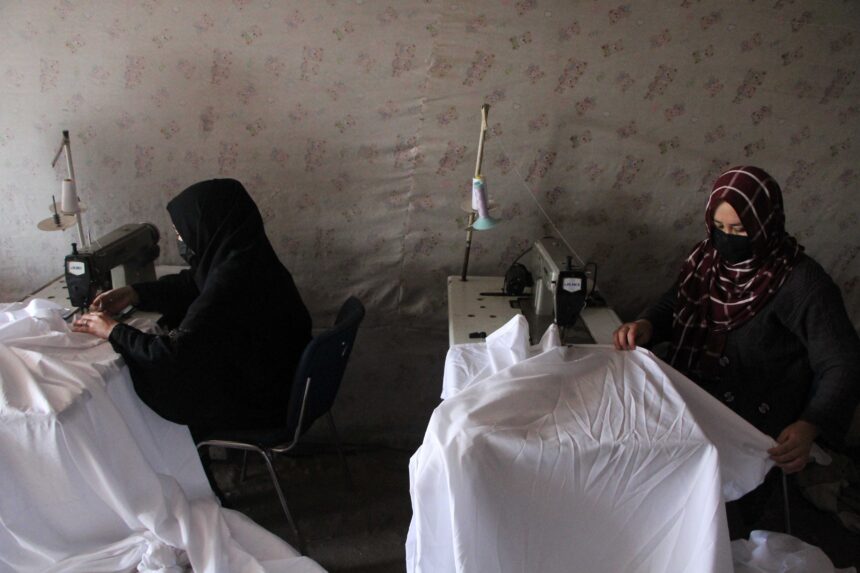In the heart of Kandahar city, once a modest hub for women-led enterprises, silence has replaced the steady rhythm of sewing machines. What used to be a lively tailoring workshop employing dozens of women has now dwindled to a fraction of its former activity.
Masouma Haidari, a local entrepreneur, opened a sewing center several years ago, providing jobs to around 40 women—most of them from low-income families. The small business not only supported her household but also empowered other women by offering financial independence in a region where economic opportunities for women are scarce.
“Back then, the situation was better,” Haidari told the Afghan Times. “Women could come to work freely. We produced garments, fulfilled orders, and earned enough to support our families. But now, only six women work here. I can’t hire more, even if I want to.”
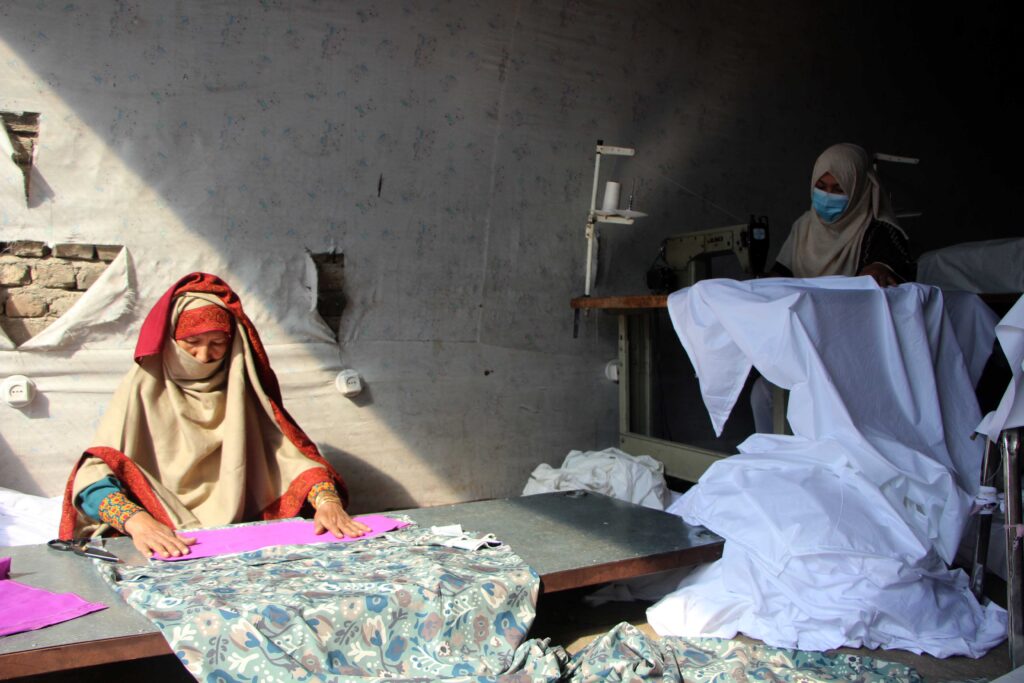
A Climate of Fear and Restriction
Since the Taliban’s return to power in 2021, restrictions on women’s mobility, work, and education have tightened steadily. While many women adapted by shifting to home-based businesses—such as sewing, embroidery, and handicraft production—these alternatives are also increasingly constrained.
Women like Haidari say they face daily uncertainty, fearing even their limited operations could be shut down.
“There’s no official ban on working from home, but there are so many indirect restrictions—limited access to materials, threats of inspections, fear of punishment. You don’t know when the rules might change,” she said.
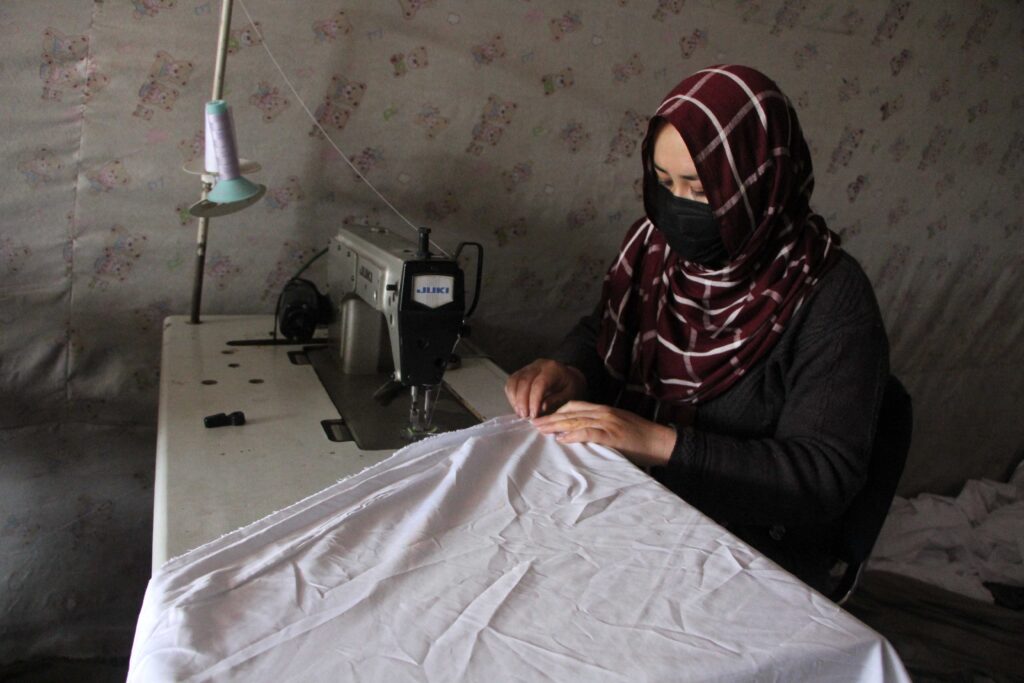
Work Without Access
One of the most pressing issues for home-based businesswomen is the inability to access markets. Without the ability to travel freely, many women are unable to sell their products or meet buyers, drastically reducing their income.
Hela Haya Durkhani is a tailor and designer who specializes in traditional Afghan dresses. Her work once reached markets in Pakistan and other neighboring countries. But after the Taliban enforced the mahram (male guardian) requirement for women traveling alone, her business came to a standstill.
“I am the only breadwinner in my family. I have no male guardian to accompany me,” she said. “Because of that, I can’t go out to deliver products or buy supplies. The work has stopped, and our economic situation has collapsed.”
According to Durkhani, she used to send finished products abroad regularly. Now, orders have dried up, clients have moved on, and even sourcing fabric has become a logistical nightmare.
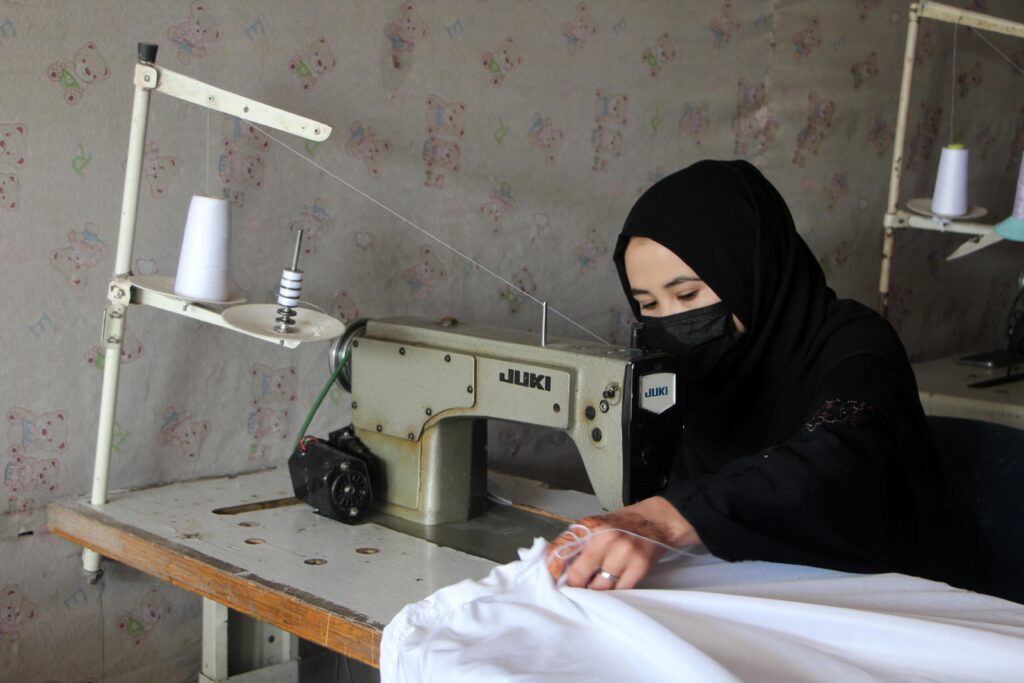
No Place to Sell
For women who manage to produce items from home, selling them is an even greater challenge. Donya Naseri, a young woman who turned to tailoring after girls’ schools were closed beyond grade six, says she no longer has any outlet for her work.
“When the Taliban came, school ended. I was in eighth grade,” she said. “So I started tailoring at home. But there’s no official market, no center where I can sell. Our work is fading away.”
Naseri recalls a time before the current restrictions when Kandahar had a women-only bazaar—a designated space where women could sell their handmade items without fear. That market has now been closed by the Taliban authorities.
“Before, there was a market just for women. We could go, interact, and earn. Now even that is gone,” she added.
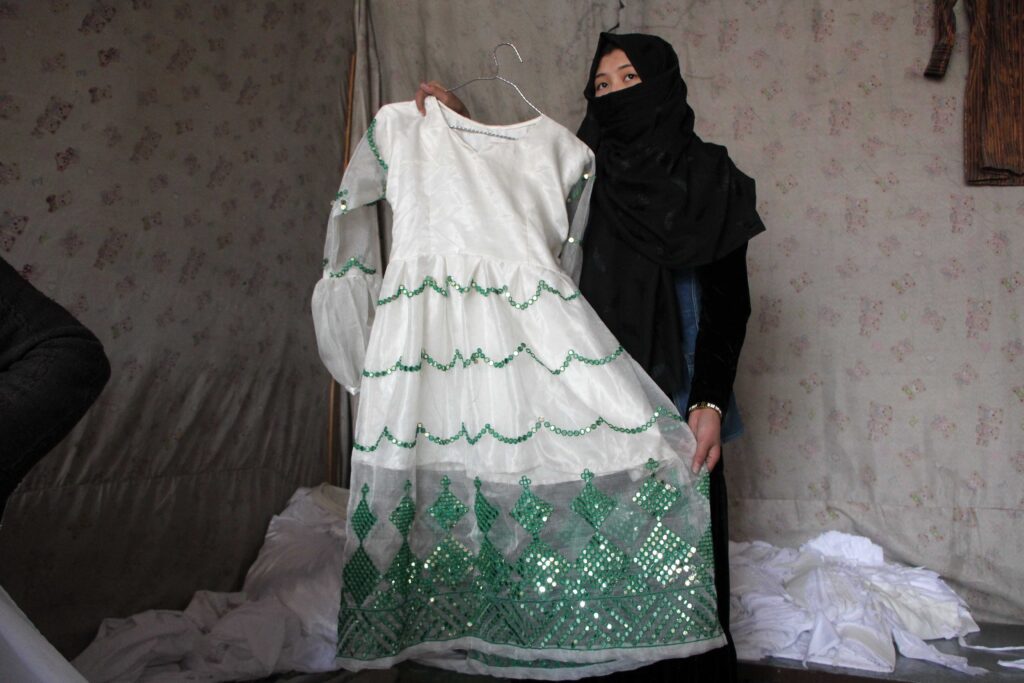
An Economy at Risk
The stories of Haidari, Durkhani, and Naseri are not isolated. Across Kandahar, many women have lost both their jobs and the freedom to work. For some families, these small home-based businesses were their only source of income.
In the absence of public education and employment opportunities, home enterprises were a lifeline. But as those too disappear, economic desperation deepens, especially among widows and single mothers.
“These women aren’t asking for favors,” said one local elder who asked not to be named for safety reasons. “They’re asking to be allowed to work from home, to sell their goods, to support their children. That’s all.”
Human rights organizations have consistently warned that the Taliban’s restrictions on women’s economic participation are not only a violation of fundamental rights, but also a driver of deepening poverty and national economic decline.
The United Nations Development Programme (UNDP) has reported that Afghanistan’s economy has contracted by over 20% since 2021, with the exclusion of women from the workforce contributing significantly to the collapse. In a 2023 statement, UNDP Administrator Achim Steiner warned, “You cannot exclude half the population and expect to see any meaningful recovery.”
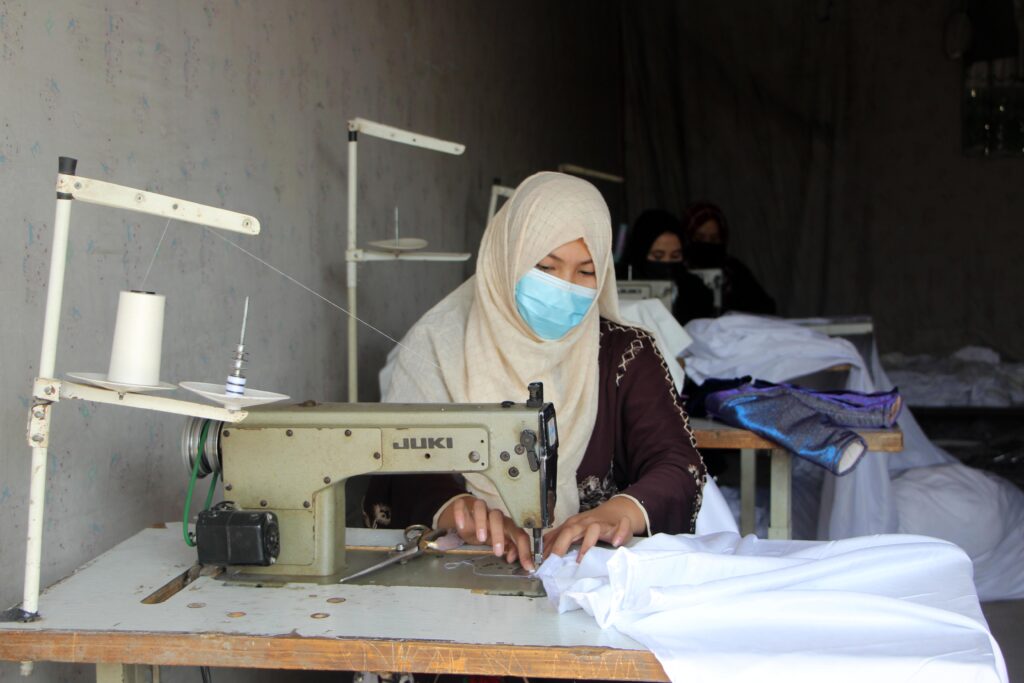
A Plea for Space and Safety
The women of Kandahar are calling on the authorities to lift barriers on home-based work, restore access to markets, and provide at least a limited space where women can safely earn a living.
“If they don’t let us work outside, at least let us work inside our homes,” said Haidari. “Don’t close every door.”
In a city where public spaces for women are disappearing and silence is replacing the hum of industry, Kandahar’s women entrepreneurs continue to resist—quietly but persistently—hoping their voices will be heard.
